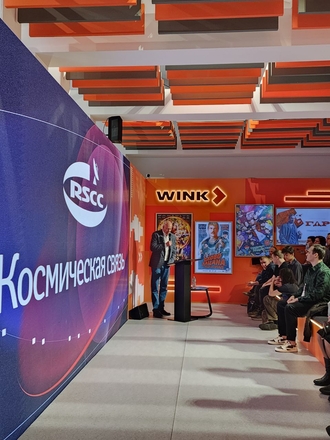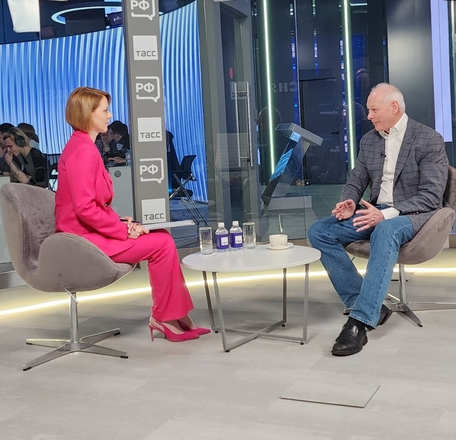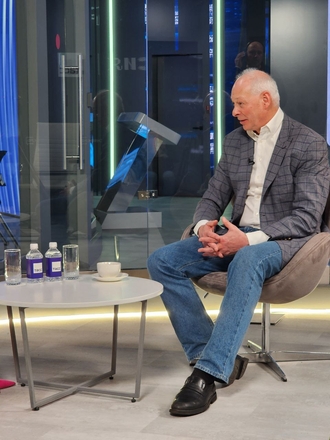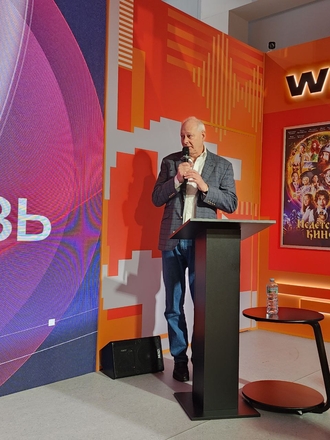Space Highlights on Key Issues: Alexey Volin, Director General of RSCC, Speaks about the Satellite Communications Development Drivers at the Russia Expo
Remote, hard-to-reach areas with small populations are now one of the main drivers for the development of satellite communications. Alexey Volin, Director General of the Russian Satellite Communications Company, spoke about it on March 22 as part of a lecture at the international Russia Expo at VDNH.
"On the one hand, 98% of our people have access to either mobile or fiber communication networks. But they live in less than 20% of the Russia’s territory, with the other 80% having no communication other than satellite one. Geologists, builders, ship crews and other specialists need permanent communication lines with the Mainland and can count only on us" noted Alexey Volin.
That said, ships and shipping as such is another driver of the industry. "Vessels in the middle of the ocean badly need, not only telemetry, navigation and mapping information, but also communication with their families and friends ashore. Now 510 vessels, 27 of which are ice-class ships, use cutting-edge VSAT solutions of our enterprise and stay in touch in any conditions" added the Director General of RSCC.
Another important driver for the development of satellite industry is television naturally. "In total, there are about 600 GEO satellites on orbit now, and about half of their bandwidth is used for TV signal transmission," summarized Alexey Volin.
The Director General of RSCC specially touched upon how the satellites are manufactured and why it is now more important than ever to make fully domestic telecommunication satellites. "Previously, some of the satellite payloads were manufactured abroad. With the sanctions against Russia being imposed, the need for a domestic full cycle production of satellites arose. I can say that our industry coped with this task in just a few months. Today, 30 Russian enterprises manufacture about 1,100 satellite components. And now, a fully domestic satellite "Express-AMU4" is being built at our order. It will be launched into orbit in 2026" said Alexey Volin. We have successfully substituted the imported receiving equipment, which until recently was manufactured in foreign countries. The same is true for software: "Today we use more than 60% of domestic software. It will be 90% by the end of the year," said the Director General of RSCC.
Alexey Volin also answered the questions of the listeners asking why a satellite’s mission life is only 15 years, whether they can be refueled in orbit, how satellites are replaced and where the old ones are sent to.
The lecture was held at the stand of the Wink movie theater and lecture-hall within the World of Digital exposition, Pavilion E. The event participants had an opportunity to visit the RSCC stand and enjoy the interactive model of the company’s satellites, try to launch a satellite into geostationary orbit and control it.
Along with the lecture, on March 22, the RSCC Director General gave an interview to the TASS news agency. In this interview Alexey Volin told about the constellation renewal program, plans of introducing high-precision positioning technology in the field of marine geology, bridging the digital divide and profile changes of RSCC foreign customers over the past few years.



